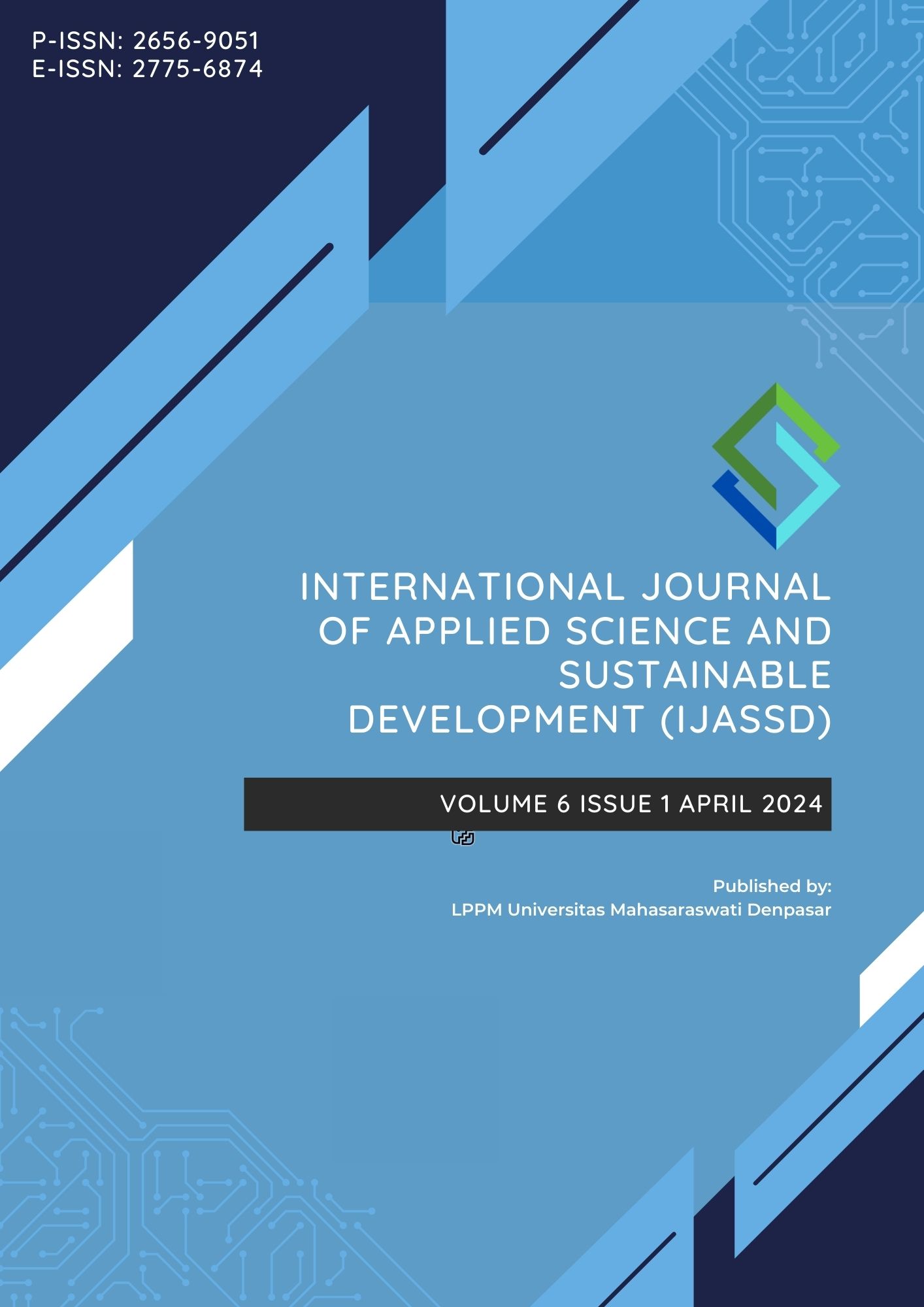Balinese Parents’ Involvement on Promoting Digital Citizenship Values: From Ethnopedagogy Perspective
DOI:
https://doi.org/10.36733/ijassd.v6i1.9110Keywords:
digital citizenship, Parent's involvement, ethnopedagogy perspectiveAbstract
The rapid changes of digital technology should be followed by assistance from the adult to the young users. Parents should take a chance to involve in their children digital life and promoting the values of digital citizenships, so that the children can be a good digital citizen who responsible and use digital technology in appropriate way. This study is conducted by on descriptive qualitative design to identify and describe parents’ involvement on promoting digital citizenship values seen from ethnopedagogy perspectives, specifically on Balinese setting. The participants of this study were 40 students who learned about digital citizenship values and children from Balinese parents. The information gathered by using close questionnaire, open questionnaire, and interview to the participants. The instruments used were list of close questionnaire questions, list of open questionnaire questions, and list of interview questions. After the data were gathered, the data analysed using Interactive Model. The results indicated that parental involvement was needed by the children and parents had already done that. The unique thing was that the parents did not have clear concept of digital citizenship but able to promote the values of digital citizenship to their children. They used their local language as the mother tongue, Balinese language in delivering their messages and advices about the values. The parents also strengthen the families and local culture and norms related to digital citizenship, such aa politeness in communication (anggah ungguhing Basa Bali), respect, keeping social relationship (menyama braya), and balancing right and responsibility.
Downloads
References
Ahn, J. (2011). Digital divides and social network sites: Which students participate in social media? Journal of Educational Computing Research, 45(2), 147–163.
Alwasilah, A. C., Suryadi, K., Karyono, T. 2009. Etnopedagogi: Landasan Praktek Pendidikan dan Pendidikan Guru.Bandung: Kiblat Buku Utama.
Choi, M. (2016). A Concept analysis of digital citizenship for democratic citizenship education in the internet age. Theory & Research in Social Education, 44(4), 565–607.
Clark, L. S. (2009). Digital media and the generation gap. Information, Communication & Society, 12(3), 388–407.
Fitri, A. Z. (2012). Keluarga Sebagai Lembaga Pertama Pendidikan Islam. Jurnal Pendidikan Islam. 17(1), 21-34. https://doi.org/10.15575/jpi.v27i1.493
Hollandsworth, R., Dowdy, L., & Donovan, J. (2011). Digital citizenship in K-12: It takes a village. TechTrends, 55(4), 37–47.
Internet World Stats. (2021). Asia internet use, population statistics data and Facebook data - mid-year 2021. Accesssed from https://www.internetworldstats.com/stats3.htm
Khurana, A., Bleakley, A., Jordan, A. B., & Romer, D. (2015). The Protective effects of parental monitoring and internet restriction on adolescents’ risk of online harassment. Journal of Youth and Adolescence, 44(5), 1039–1047.
Mardiya. (2021). Menghidupkan Fungsi Sosial Budaya Keluarga. Diakses pada https://pemberdayaan.kulonprogokab.go.id/detil/1414/menghidupkan-fungsi-sosial-budaya-keluarga
Miles, M.B. & Huberman, A.M. (1994). Qualitative Data Analysis, Second Ed. UK: Sage Publication.
Muzakkir. (2021). Pendekatan Etnopedagogi Sebagai Media Pelestarian Kearifan Lokal. Jurnal Hurriah: Jurnal Evaluasi Pendidikan Dan Penelitian. 2(2), 28-39.
Peraturan Pemerintah Nomor 21 Tahun 1994 tentang Penyelenggaraan Pembangunan Keluarga Sejahtera. Diakses dari https://peraturan.bpk.go.id/Home/Details/57208/pp-no-21-tahun-1994
Rachmawati, Y. (2021). Pengembangan Model Etnoparenting Indonesia pada Pengasuhan Anak. Jurnal Obsesi : Jurnal Pendidikan Anak Usia Dini, 5(2), 1151-1163. DOI: 10.31004/obsesi.v5i2.706
Ribble, M. & Bailey, G. (2007). Digital Citizenship in Schools. USA: International Society for Technology in Education.
Ribble, M. (2009). Raising a digital child. A Digital citizenship handbook for parents. Washington, DC: International Society for Technology in Education.
Rosen, L. D., Cheever, N. A., & Carrier, L. M. (2008). The Association of parenting style and child age with parental limit setting and adolescent MySpace behavior. Journal of Applied Developmental Psychology, 29(6), 459–471.
Saputra, M. and Siddiq, I. H. A. (2020). Social Media and Digital Citizenship: The Urgency of Digital Literacy in the Middle of a Disrupted Society Era. Jounal of Emerging Technologies in Learning (iJET), 15(7), 156-161. doi: https://doi.org/10.3991/ijet.v15i07.13239
Subiantoro, E. et al. (2013). Simulasi Digital Jilid 1. Jakarta: Kementerian Pendidikan & Kebudayaan.
Undang-Undang Republik Indonesia Nomor 1 Tahun 1974 tentang Perkawinan. Diakses dari https://peraturan.bpk.go.id/Home/Details/47406/uu-no-1-tahun-1974
Undang-Undang Republik Indonesia tentang Sistem Pendidikan Nasional Tahun 2013. Diakses dari https://peraturan.bpk.go.id/Home/Details/43920/uu-no-20-tahun-2003#:~:text=Dalam%20UU%20ini%20diatur%20mengenai,bahasa%20pengantar%3B%20dan%20wajib%20belajar.
Uno, H. B. & Nina, L. (2016). Landasan Pendidikan. Bumi Aksara: Jakarta
Wahyu, H. (2012). Keluarga Sebagai Basis Pendidikan Pertama dan Utama. Jurnal Ilmiah DIDAKTIKA. 12(2), 245-258.
Wang, X., & Xing, W. (2018). Exploring the Influence of Parental Involvement and Socioeconomic Status on Teen Digital Citizenship: A Path Modeling Approach. Educational Technology & Society, 21 (1), 186–199.
Wirawan, I. M. A. & Paryatna, I. B. M. L. (2016). Pengembangan kamus anggauh-ungguhing bahasa Bali. Jurnal Nasional Pendidikan Teknik Informatika (JANAPATI), 5(2), 98-107.




